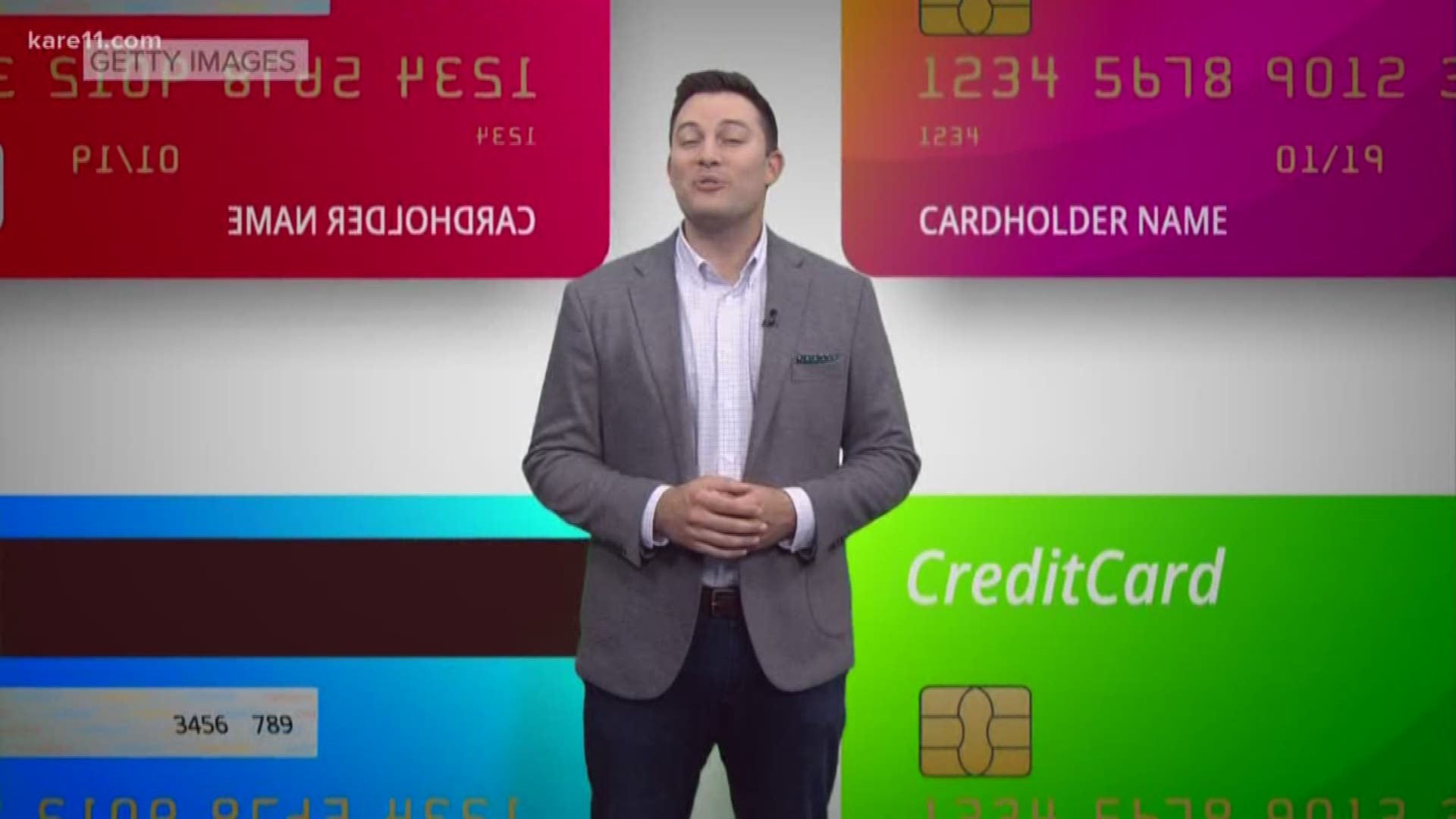GOLDEN VALLEY, Minn. — So you're thinking about moving from the practice field to the big game, piggy bank to plastic for your young teenager?
You’re not alone.
Six million parents in the U.S. give their kids a credit card to their teenage kids, about eight percent, according to creditcards.com.
Justin Halverson, co-founder of Great Waters Financial, says there are a number of factors to consider when taking this route.
Budget before borrow
First, he says teach to budget before you teach to borrow.
“Starting with a checking or savings account teaches them to spend money responsibly,” said Halverson. “That way they understand how it works; they have to have the money to spend it.”
What’s the right age?
Experts say the right age to give your kid a credit card is subjective and depends on the child's maturity. But Halverson feels 15 years old is a good age, because it gives a teen three years to build credit and learn what “APR” and “fee” mean before they're old enough to have a card in their own name.
But beware—and maybe take a good look in the mirror parents—because adding kids to your credit card can come with risks.
“They have access to your credit limit, so be careful. Number two, if you ever got into financial trouble and you missed a payment, you could put a real dent in your kid’s credit history and put them in a disadvantage instead of an advantage,” said Halverson.
Which cards to consider?
Halverson suggests getting a new card with a small limit, perhaps $500.
He also recommends trying a secured credit card that requires a deposit for the same amount as the limit. This way your child can build credit history with the three credit bureaus and learn how to manage their debt monthly with a safety net.
For a list of optimal starter credit cards, here’s a list compiled by Wallet Hub.
Define ‘emergency’
And speaking of safety net, if you give your kid a card for emergencies, it’s better to define that now than later.
“Does it have to be a car emergency? Do you need a tow truck? Does that qualify or just being short on bills for the month and having to get groceries? [It’s] hard to put parameters on that,” said Halverson.
21 percent of parents with children who have credit cards say their kid used it without permission, according to Experian.
Like any tool, credit can help or hurt the ultimate goal depending on how it’s used. So start small and plant the seed correctly. Learning the easy way is hard, but never as hard as the hard way.

